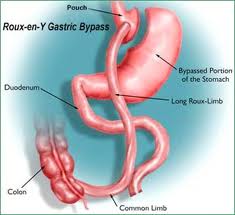The American Society for Metabolic and Bariatric Surgery (ASMBS) and International Federation for the Surgery of Obesity and Metabolic Disorders (IFSO) have recently published their 2022 joint statement update for indications for metabolic and bariatric surgery.
Since the original NIH consensus statement in 1991, there are much more data on the benefits and risks of bariatric surgery. The types of surgeries commonly performed have evolved as well, with sleeve gastrectomy and gastric bypass surgery now accounting for about 90% of all operations performed worldwide.
In the 2022 statement, eligibility criteria for bariatric surgery have beeen expanded, now recommending surgery for:
- people with body mass index (BMI) ≥35, regardless of presence, absence, or severity of related health conditions
- people with type 2 diabetes and BMI ≥30
(Note that these criteria differ from the Canadian Obesity Clinical Practice Guidelines recommendations, which you can find here.)
They further conclude that:
- bariatric surgery should be considered for people with BMI 30-34.9 who do not achieve substantial or durable weight loss or improvement in obesity-related health issues using non surgical methods.
- Obesity in the Asian population is recognized in people with BMI >25, and access to bariatric surgery should not be denied solely based on traditional BMI criteria.
- There is no upper age limit to who should be offered bariatric surgery. For older individuals, careful assessment of health issues and frailty is important.
Additional topics addressed include:
- bariatric surgery criteria in children and adolescents
- use of bariatric surgery as a bridge to other treatment (for example, to facilitate weight loss before (or instead of) joint replacement, abdominal hernia repair, or organ transplantation)
- bariatric surgery in potentially higher risk patients (BMI >60, liver cirrhosis, heart failure)
While I think it is great to expand BMI and age criteria where there is robust scientific evidence to do so, a major concern is that access to bariatric surgery is still extremely limited. Wait times vary in Canada, being several years long in many provinces. Medications for weight management are now emerging that can approach the weight loss and health improvements achieved by bariatric surgery, and could be a very appropriate alternative treatment strategy for many people, but access to these treatments are very limited as well.
BOTTOM LINE: As is the case for all of the Pillars of Obesity Treatment, access is limited. While treatment guidelines continue to evolve in line with evidence for benefit of these treatments, access is unacceptably far behind.
Share this blog post using your favorite social media link below!
Check me out on twitter! @drsuepedersen
www.drsue.ca © 2023











